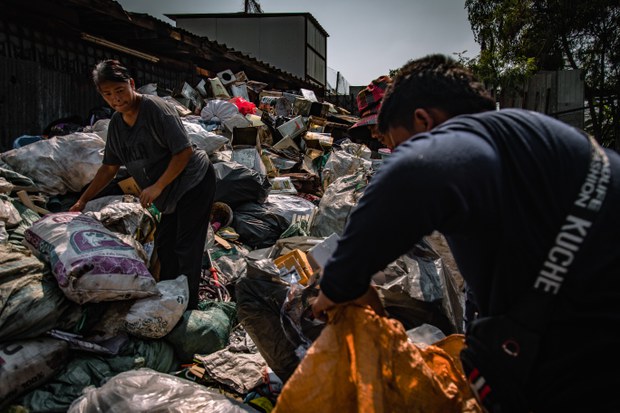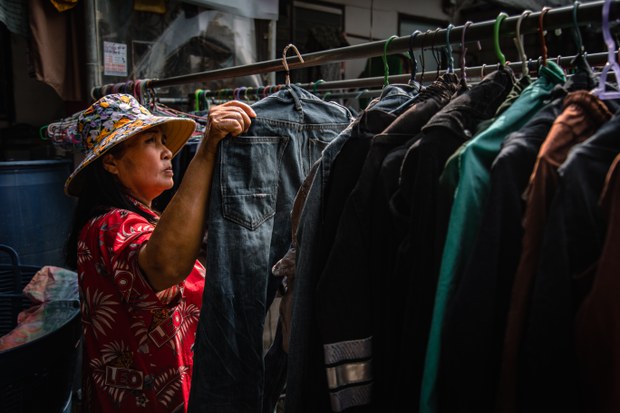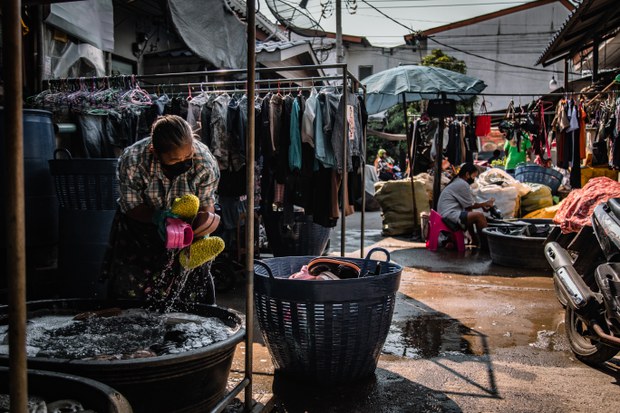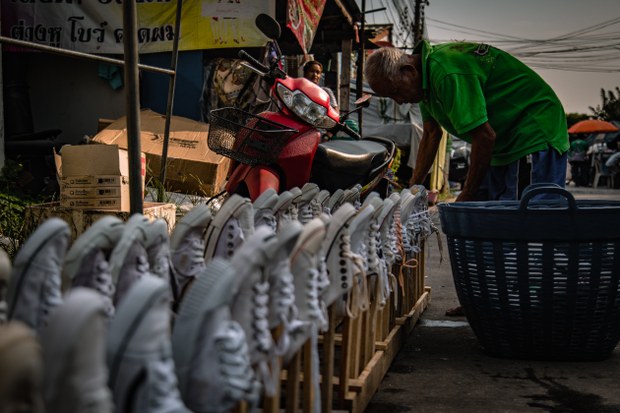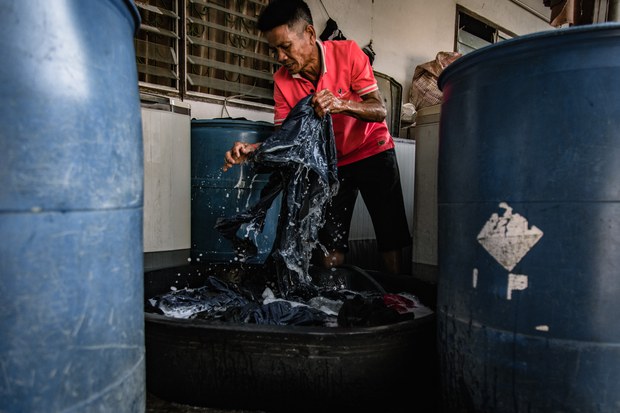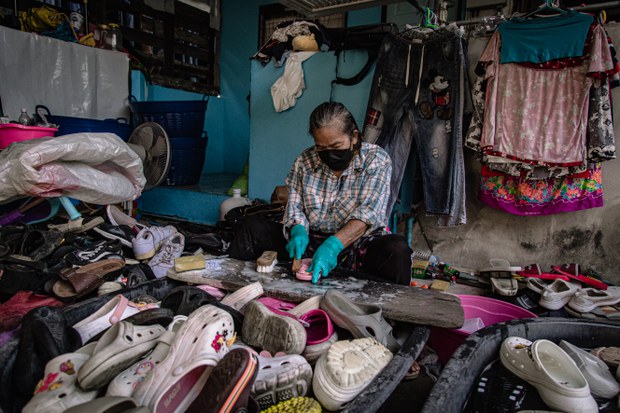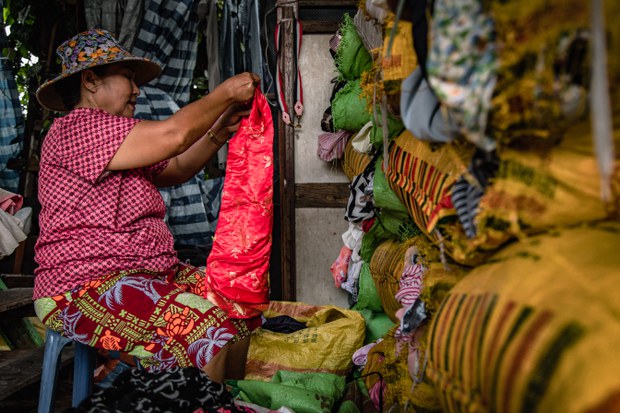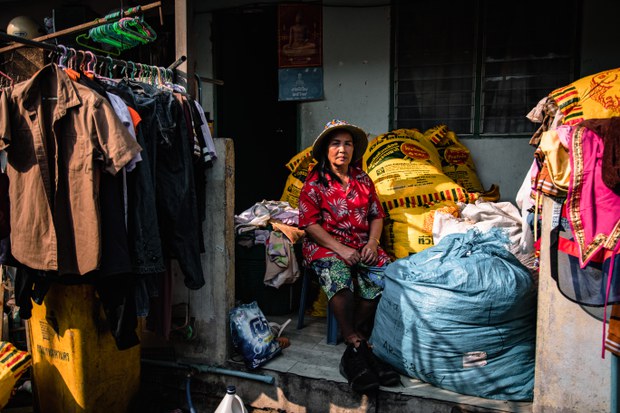Recycling Thailand’s garbage, 1 second-hand shirt at a time
2024.05.01
Bangkok
Some workers who toil away at a municipal dump in Bangkok have found a novel way of reducing Thailand’s waste and helping the environment, while pocketing a little extra cash from collecting garbage.
Chalauy Sai-utha, better known as “Auntie Ton,” is leading a team of people who scavenge through piles of trash at the dump in Nong Khaem district. They pluck out clothes and other discarded items that they hope to recycle before selling them as second-hand goods.
“I used to do odd jobs and collect scrap, but the income wasn’t enough to support my children,” Auntie Ton, who lives near the dump, told BenarNews.
“One day, I noticed people leaving good clothes and usable items with the Bangkok Metropolitan Administration’s garbage trucks. That’s when I had the idea to clean up these items and sell them as second-hand goods, which increased my income and helped reduce waste,” she said.
Auntie Ton cleans clothes, shoes and other items she salvages, and on weekends sells them to stores at a local market.
Her resourcefulness aligns with the country’s second Waste Management Action Plan (2022-2027), which aims to properly manage 80% of municipal solid waste, recycle 36%, and increase waste utilization or recycling by 74% to 100%.
“Poverty negatively affected our family environment, and my daughter turned to drugs,” Auntie Ton said.
“When I started selling second-hand clothes, our lives improved. I was able to help my daughter have a better life, quit drugs and eventually get married and start a family in another province.”
Despite efforts by Auntie Ton and others, Thailand could do more to battle the flow of solid waste.
The nation’s Pollution Control Department has reported the disposal of solid waste has been declining since 2019 when the nation generated 28.71 million tons of garbage, or an average of 1.18 kilos per person per day.
In 2022, the figure decreased to 25.70 million tons, or about 1.07 kg per person per day. However, the same data reveals that only 4.8 million tons of waste were segregated and reused that year, while Thailand lacked proper solid waste disposal facilities in nearly 20 of its 76 provinces.








